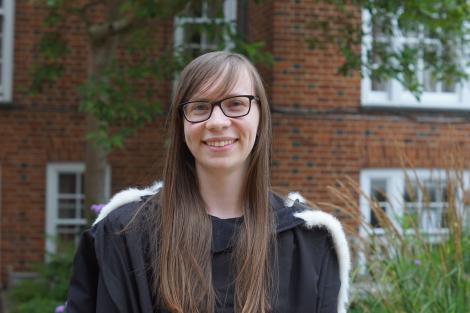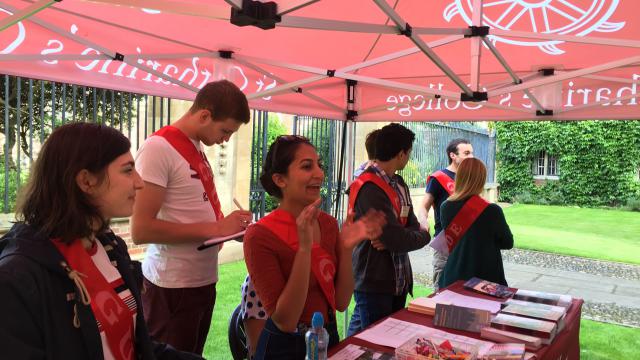Name: Amy Wilkinson
Hometown: Alrewas, Staffordshire, UK
Extracurricular interests: Arts and crafts, ballet
Postgraduate degree: PhD in biological sciences
Undergraduate life at Catz
“I really enjoyed both the academic and social sides of my time at Catz. I made a good bunch of friends and felt part of a wider and particularly supportive community. I was active in sports at both a University level (with the trampolining club) and a College level (playing with the Catz netball team).
“I first became interested in reproductive and developmental biology during my undergraduate studies at Catz. My interest in gene regulation and human reproduction was also cemented by undertaking exciting research projects in the labs of Professor Graham Burton and Dr Erica Watson. These introduced me to cutting edge technologies and concepts that I wanted to continue discovering more about.
“I was fortunate to secure a role as a research assistant at the Babraham Institute in Dr Peter Rugg-Gunn's lab from September 2021, when I had the opportunity to learn about the reality of working in research full time, as well as the early stages of human development in a clinically translational project.”
Postgraduate life at Catz
“Lots of the friends that I made during my undergraduate years are still in Cambridge or even at Catz, so we have had regular catch-ups over brunch in Hall. I have also enjoyed meeting new faces at postgraduate dinners, including the College-funded Gostlin Dinner. I commute out to the Babraham Institute for my research but I supervise second-year Natural Science undergraduates so that keeps me connected with the University too.”
Postgraduate studies
“During the earliest stages of human development, the cells of the embryo have the capacity to generate any cell type. Shortly after the embryo implants into the uterus, the cells differentiate into early progenitor cell types and begin to lay out the body plan. Despite the importance of this for pregnancy success, we don't understand very much of the mechanism behind these processes since the embryo is inaccessible to study. However, recently developed in vitro models of implantation and stem cell-based embryo models now allow us to study this elusive stage of development.
“During my PhD in the Rugg-Gunn lab, I will use these models to investigate how gene expression is controlled to regulate the post-implantation development of human embryos. The knowledge gained may improve our understanding of certain pregnancy complications and lead to better treatments and preventative measures in the future.”
The Harding Distinguished Postgraduate Scholars Programme
“The launch of the Programme coincided with my initial thoughts about pursuing postgraduate studies and I was excited at the time about what opportunities this might open up for me. My friend Rachel Mckeown, who I met during my undergraduate time at Catz, was in the 2020 Harding cohort and I have since seen how much she has gained from it.
“It is great how the Harding Scholars are creating a community across all disciplines and I’m getting the chance to meet all these interesting people and make contacts that may support my future development. In addition, I have used the research funding available to me to join the Physiological Society and the British Society for Developmental Biology, as well as to attend the Young Embryologist Network conference, enabling me to be part of international and national research communities.”
Advice for undergraduates thinking of applying for postgraduate studies
“Find a supervisor and research group who are going to support you all the way through your PhD, especially in the sciences as it can get tough when experiments don’t work and you are going to need people around you to motivate you.
“It is also worth thinking about whether you will benefit from taking a break from your studies like I did. It meant I hit the ground running with more experience behind me, not just on the technical side of things but also wider skills like how to plan a research project.”






